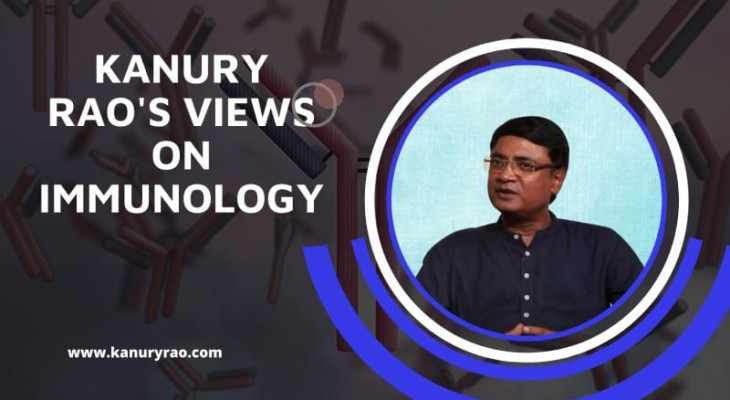Immunology deals with the study of the physiological function human immune system. It is a pivotal part of Biology, and also the most daunting. According to Kanury Rao, a healthy immune system is the result of a complex interaction of internal and environmental factors. Age, diet, and availability of medical care are among them, as are socioeconomic factors including income level and type of employment.
In the opinion of Kanury Venkata Subba Rao, Immunology is concerned with preserving and restoring the human immune system’s natural equilibrium. This includes looking at preventative methods and public health campaigns to encourage people to live healthier lives. It also encompasses diseases caused by immune system dysfunction, as well as the development of new medicines to manage or cure ailments by modifying immune system function. Immunologists are also crucial in the development and testing of novel vaccinations.
Immunology research is crucial for human and animal survival. It is at the forefront of medical research and has resulted in some of the most significant healthcare breakthroughs in recent years, such as vaccination and cancer immunotherapy. Scientists have been able to safely transplant organs from one person to another without the recipient’s body fighting against the intruder because of a better understanding of how the immune system operates. Doctors can now administer immunotherapy, also known as biologic therapy, which helps to either enhance or inhibit a patient’s immune system in order to combat a variety of illnesses more successfully.
The immune system is our own army, guarding us not just from bacterial and viral invaders, but also from malignant cells by recognizing and killing them. The immune system, like any other system, can malfunction and mistakenly designate our own bodies, as well as innocent foods and everyday substances, as targets, resulting in autoimmune disorders and allergies. Immune cells also play lesser-known roles in health maintenance, such as regulating weight gain in obesity and influencing the outcome of cardiac disease. As an immunologist, you’ll need to conduct research and develop a variety of approaches. It will be crucial to examine them in addition to forming them. By putting these tactics to the test, you can see if they’re operating as intended and in the best interests of the immune system or a specific patient.
As per Kanury Rao, Immunologists spend most of their time either performing research in the lab to discover novel medicines and diagnostic procedures or in clinics discussing patient treatment options. They work at hospitals, medical research institutes, and private practices.
Immunologists are in charge of diagnostic and research laboratories, as well as working closely with other doctors who treat disorders involving the immune system. As a result, colleagues in other specialities, such as rheumatology, haematology, or general practice, may seek their help on diagnosis and management.Your immune system isn’t working properly when you’re unwell or have an allergic reaction. Immune illnesses were once thought to be uncommon.
Immunologists can now detect and treat diseases more quickly because of enhanced testing and diagnosis. You can restore your health and prevent future damage to your body once you know what’s causing your sickness. According to Kanury Rao, an immunologist has to know what’s causing the allergic reaction in order to determine the best course of treatment. You’ll be asked to provide a full description of the symptoms you have and also about any potential triggers. A battery of tests will be performed by the immunologist to determine which allergen or substance is causing your reaction. Each test contains trace levels of allergens that can lead to an allergic reaction.
The growing importance of clinical immunology in the treatment of a variety of diseases predicts that allergy and immunology professionals will continue to expand their knowledge of immune-related disorders. In the practice of allergy as well as immunology and the application of allergy and immunology training to prospects in the pharmaceutical business and academia, the field of allergy and immunology offers a variety of professional benefits. According to Kanury Venkata Subba Roy, the number of allergists and immunologists in training is insufficient to fulfill present demands.
While immunology education and research play an important role in understanding host-pathogen interactions, immunology training programs are still fully incorporated into higher education curricula and, by extension, high schools in poor countries. As per Kanury Venkata Sabba Rao, another reason to value immunology is the ability to develop precision medicine through genomics and other emerging high-throughput methods. Immunologists could also play a major role in community engagement, to spread awareness among the people in the community related to vaccination, the immune response to diseases, counselling parents and providing guidance about the inborn errors of immunity, and how to manage allergies and autoimmune diseases.
Advertisement




